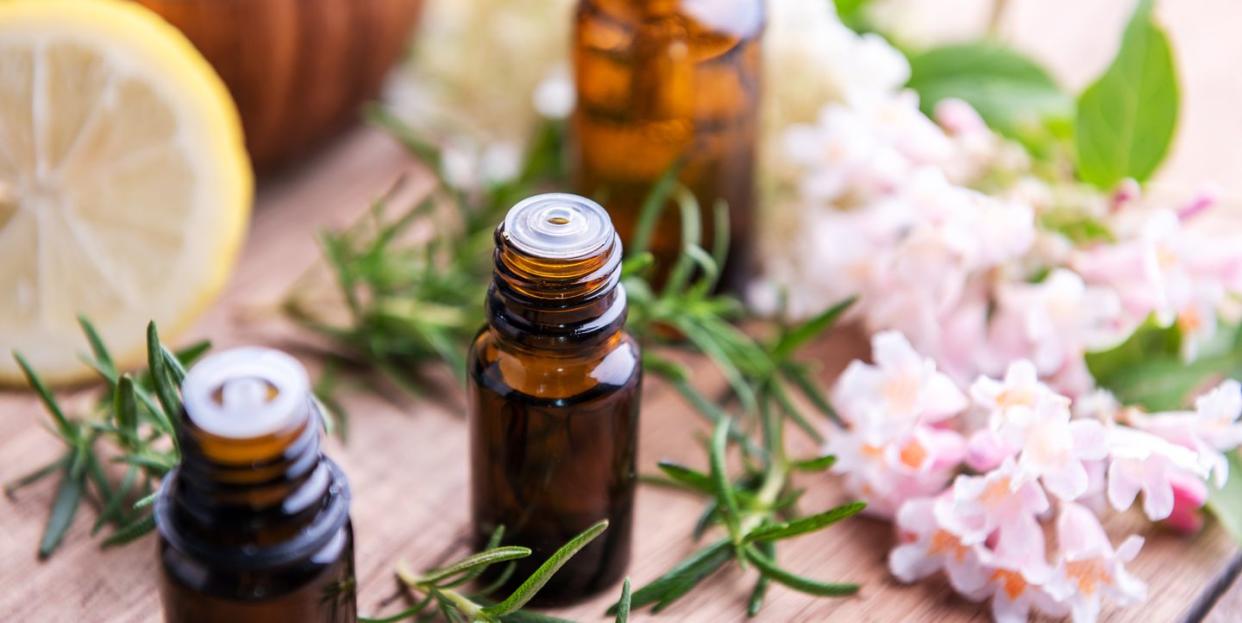Can Aromatherapy Actually Replace That Second Cup of Coffee?

"Hearst Magazines and Yahoo may earn commission or revenue on some items through these links."
Over the winter holidays, I received a Vitruvi essential oil diffuser as part of a gift exchange, but with all of the end-of-the-year hustle and bustle, I never got around to actually using it. Then, last week, I stumbled upon the unopened box in my closet and figured I’d give it a try. For context, I knew nothing about how aromatherapy worked, and whether or not it was legit, so I did some research.
According to Johns Hopkins Medicine, “Aromatherapy has been used for centuries. When inhaled, the scent molecules in essential oils travel from the olfactory nerves directly to the brain and especially impact the amygdala, the emotional center of the brain.”

Stone Essential Oil Diffuser
$123.00
vitruvi.com
VitruviWe live in a part of the world where medicine dominates, so I was curious to know if a more homeopathic approach could actually work. So for seven days, I relied entirely on essential oils to influence my moods, and my amygdala had a lot of thoughts.
I used lavender, rosemary, and peppermint essential oils, as these are famously the most impactful and best for novice aromatherapy converts. The diffuser made using the oils easy: Simply fill the reservoir with water, add between 20-30 drops of oil, and set your timer. I set mine for four hours to really let the scents take effect.
Here is my breakdown of how each scent went down.
Lavender: Insomnia, fatigue, stress, and fear
I have known about the calming benefits of lavender for years, so I wanted to try this a few hours before going to sleep. I think I overhyped how much this would work because, although it made my bedroom smell like a luxurious hotel spa, I didn’t notice that I felt any more serene than I usually do around 11 pm.
Rosemary: Throat and nasal congestion
No matter the season, I always wake up with a bit of nasal congestion that goes away over the course of the day. After reading about the benefits of inhaling rosemary essential oil, I figured trying it first thing in the morning couldn’t hurt. Unlike the lavender essential oil, rosemary actually worked very quickly. Within minutes, I could breathe normally—no tissues necessary. I didn’t have to stand right over the diffuser either; I just stood near it for about 15 minutes while I washed my face and brushed my teeth.
Peppermint: Mental function and stress
Technically, peppermint essential oil is said to improve mental acuity and relieve stress, but after inhaling it for about an hour, I felt more awake than anything. I even skipped my morning coffee that day. I didn’t notice that my stress levels went down (perhaps because I wasn’t very stressed to begin with), but I definitely felt more focused and ready for the day.
All in all, I think aromatherapy works if you’re open to it. If you’re skeptical and convinced it won’t do anything, it probably won’t. Another tip: Don’t overhype the power of essential oils. If you’re going through an emotional breakup, lavender oil won’t make you feel okay about it all. If you haven’t slept in days, the peppermint oil won’t make you feel well-rested. If you have a sinus infection, rosemary oil won’t cure you (though it definitely will help you breathe a little bit better). So if you don’t have an essential oil diffuser, you may want to consider snagging one.
Follow House Beautiful on Instagram.
You Might Also Like

